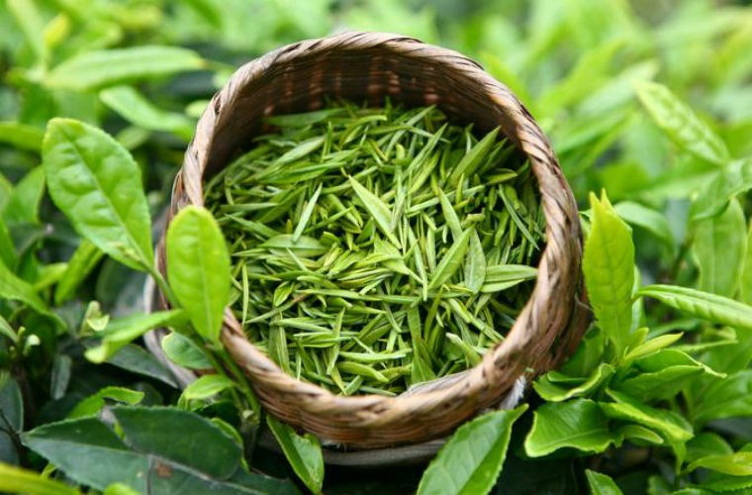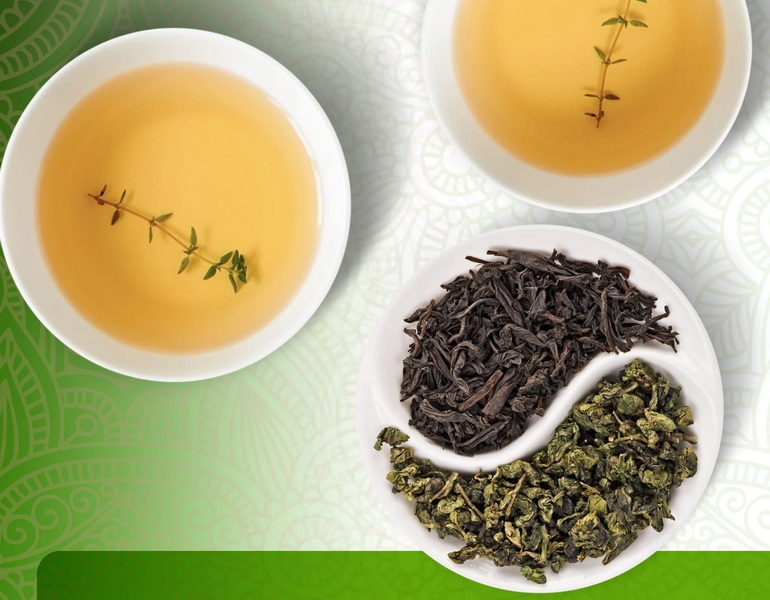Content Menu
● The Origins of Green Tea Extract
● The Extraction Process
● Key Components of Green Tea Extract
>> 1. Polyphenols
>>> Catechins
>> 2. Caffeine
>> 3. L-Theanine
>> 4. Vitamins and Minerals
● The Health Benefits of Green Tea Extract
● How Green Tea Extract is Used
● The Production Process of Green Tea Extract
● Comparing Green Tea Extract to Brewed Green Tea
● Safety Considerations and Potential Side Effects
● The Future of Green Tea Extract Research
● Conclusion
● Frequently Asked Questions
>> 1. How much green tea extract should I take daily?
>> 2. Can green tea extract help with weight loss?
>> 3. Is green tea extract safe for everyone?
>> 4. How does green tea extract compare to drinking green tea?
>> 5. Can green tea extract cause side effects?
● Citations:
Green tea extract is a concentrated form of green tea that has gained popularity for its potential health benefits. This article will explore the composition of green tea extract, its production process, and the various compounds that contribute to its beneficial properties.

The Origins of Green Tea Extract
Green tea extract is derived from the leaves of the Camellia sinensis plant, the same plant used to make various types of tea, including black, oolong, and white tea[1]. The key difference lies in the processing method. While other teas undergo fermentation, green tea leaves are quickly heated to prevent oxidation, preserving their natural compounds.
The Extraction Process
To create green tea extract, manufacturers use various methods to concentrate the active compounds found in green tea leaves. The most common methods include:
1. Water extraction
2. Alcohol extraction
3. CO2 extraction
These processes aim to isolate and concentrate the beneficial compounds while removing unwanted elements like caffeine (in some cases) and fiber.
Key Components of Green Tea Extract
Green tea extract is rich in several bioactive compounds that contribute to its health-promoting properties. Let's explore the main components:
1. Polyphenols
Polyphenols are the primary active compounds in green tea extract. They are powerful antioxidants that help protect cells from damage caused by free radicals[2]. The most abundant and well-studied polyphenols in green tea extract are catechins.
Catechins
The four main catechins found in green tea extract are:
- Epigallocatechin gallate (EGCG)
- Epigallocatechin (EGC)
- Epicatechin gallate (ECG)
- Epicatechin (EC)
Among these, EGCG is the most abundant and potent, accounting for about 50-80% of the total catechin content in green tea extract[3].
2. Caffeine
While green tea extract contains less caffeine than coffee, it still provides a mild stimulant effect. The caffeine content in green tea extract can vary depending on the extraction process and whether it has been decaffeinated[4].
3. L-Theanine
L-Theanine is an amino acid found in green tea that has been shown to promote relaxation without causing drowsiness. It works synergistically with caffeine to provide a balanced, focused energy[5].
4. Vitamins and Minerals
Green tea extract contains various vitamins and minerals, including:
- Vitamin C
- Vitamin B complex
- Vitamin E
- Manganese
- Zinc
- Chromium
These nutrients contribute to the overall health benefits of green tea extract.
The Health Benefits of Green Tea Extract
The unique combination of compounds in green tea extract contributes to its numerous potential health benefits. Here are some of the most well-researched benefits:
1. Antioxidant Properties
2. Weight Loss Support
3. Heart Health
4. Brain Function
5. Liver Protection
How Green Tea Extract is Used
Green tea extract is available in various forms, including:
- Capsules
- Liquid extracts
- Powders
It's commonly used as a dietary supplement, but it's also found in many skincare products due to its antioxidant properties.
The Production Process of Green Tea Extract
The production of green tea extract involves several steps to ensure the highest quality and concentration of beneficial compounds:
1. Harvesting: Tea leaves are carefully picked, typically by hand, to ensure only the freshest leaves are used.
2. Steaming or Pan-Firing: The leaves are quickly heated to prevent oxidation and preserve the natural compounds.
3. Drying: The leaves are dried to remove moisture and prepare them for extraction.
4. Extraction: Using one of the methods mentioned earlier (water, alcohol, or CO2), the active compounds are extracted from the dried leaves.
5. Concentration: The extract is concentrated to increase the potency of the beneficial compounds.
6. Standardization: The extract is standardized to ensure a consistent level of active compounds, particularly EGCG.
7. Testing: The final product undergoes rigorous testing for purity, potency, and safety.
Comparing Green Tea Extract to Brewed Green Tea
While both green tea extract and brewed green tea offer health benefits, there are some key differences:
| Green Tea Extract | Brewed Green Tea |
| Higher concentration of catechins | Lower concentration of catechins |
| Can be consumed in capsule or powder form | Consumed as a beverage |
| May have caffeine removed | Contains natural caffeine |
| Standardized for specific compounds | Varies based on brewing method and tea quality |
Safety Considerations and Potential Side Effects
While green tea extract is generally considered safe for most people when used as directed, it's important to be aware of potential side effects and interactions:
- Caffeine sensitivity: Even decaffeinated green tea extract may contain small amounts of caffeine, which could affect sensitive individuals.
- Iron absorption: The catechins in green tea extract may interfere with iron absorption.
- Liver concerns: In rare cases, high doses of green tea extract have been associated with liver problems.
- Drug interactions: Green tea extract may interact with certain medications, including blood thinners and some antibiotics.
Always consult with a healthcare professional before adding green tea extract to your supplement regimen, especially if you have any pre-existing health conditions or are taking medications.
The Future of Green Tea Extract Research
As interest in natural health solutions continues to grow, research into green tea extract and its potential benefits is ongoing. Scientists are exploring its effects on various health conditions, including:
- Cancer prevention
- Diabetes management
- Cognitive decline
- Skin health
- Athletic performance
These studies may lead to new applications and a deeper understanding of how green tea extract can contribute to overall health and wellness.
Conclusion
Green tea extract is a concentrated form of the beneficial compounds found in green tea leaves. Its primary components include polyphenols (particularly catechins like EGCG), caffeine, L-theanine, and various vitamins and minerals. The extraction process aims to isolate and concentrate these compounds, resulting in a potent supplement that offers numerous potential health benefits.
While green tea extract shows promise in supporting various aspects of health, from antioxidant protection to weight management, it's important to use it responsibly and under the guidance of a healthcare professional. As research continues, we may discover even more ways that this powerful extract can contribute to our well-being.

Frequently Asked Questions
1. How much green tea extract should I take daily?
The recommended dosage of green tea extract can vary depending on the specific product and its concentration. Generally, a daily dose of 250-500 mg of green tea extract is considered safe and effective for most adults. However, it's essential to follow the instructions on the product label and consult with a healthcare professional before starting any new supplement regimen.
2. Can green tea extract help with weight loss?
Green tea extract may support weight loss efforts due to its caffeine content and the presence of catechins, particularly EGCG. These compounds have been shown to boost metabolism and increase fat oxidation. However, it's important to note that green tea extract is not a magic solution for weight loss and should be used in conjunction with a healthy diet and regular exercise for best results.
3. Is green tea extract safe for everyone?
While green tea extract is generally considered safe for most people when used as directed, it may not be suitable for everyone. Pregnant or breastfeeding women, people with liver problems, and those sensitive to caffeine should consult their healthcare provider before using green tea extract. Additionally, it may interact with certain medications, so it's important to discuss its use with your doctor if you're taking any prescription drugs.
4. How does green tea extract compare to drinking green tea?
Green tea extract is a more concentrated form of the beneficial compounds found in green tea. This means you can potentially get higher doses of catechins and other active ingredients in a smaller, more convenient form. However, drinking green tea provides additional benefits such as hydration and the enjoyment of the tea-drinking experience. Both forms can be beneficial, and the choice between them often comes down to personal preference and convenience.
5. Can green tea extract cause side effects?
While green tea extract is generally well-tolerated, some people may experience side effects, particularly when taken in high doses. Potential side effects can include headaches, nervousness, sleep problems, and digestive issues. In rare cases, high doses of green tea extract have been associated with liver problems. It's important to follow the recommended dosage and discontinue use if you experience any adverse effects.
Citations:
[1] https://rxlab.com/shop/green-tea-extract
[2] https://www.urmc.rochester.edu/encyclopedia/content?contenttypeid=19&contentid=GreenTeaExtract
[3] https://lotioncrafter.com/products/green-tea-extract
[4] https://www.alamy.com/stock-photo/green-tea-extract.html
[5] https://www.youtube.com/watch?v=kmlcjBJ05Sk
[6] https://www.youtube.com/watch?v=t4Gcrc9lMog
[7] https://www.healthline.com/nutrition/10-benefits-of-green-tea-extract
[8] https://www.zhounutrition.com/blogs/the-greatness-files/green-tea-extract-q-a
[9] https://www.greentea.net/ingredients/
[10] https://www.freepik.com/free-photos-vectors/green-tea-extract





























